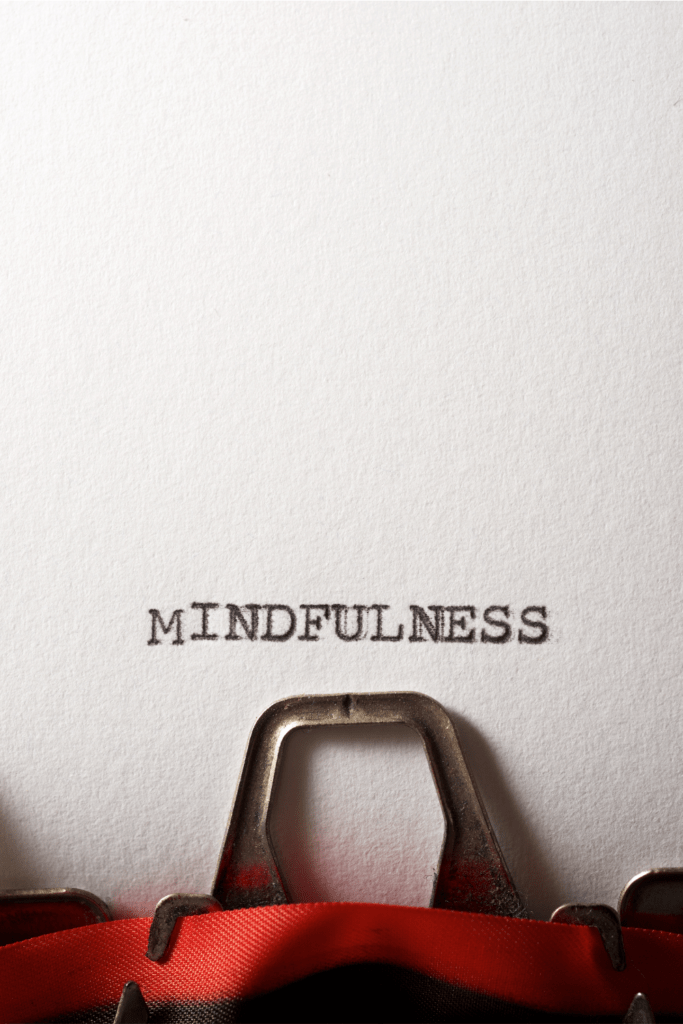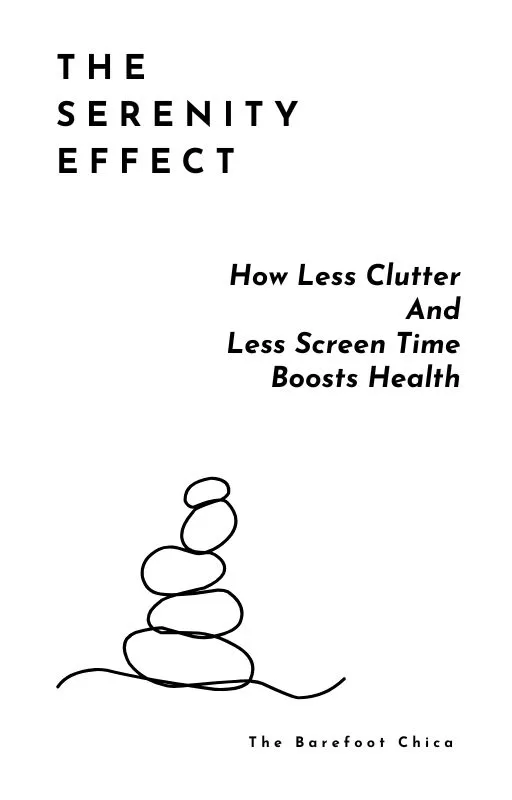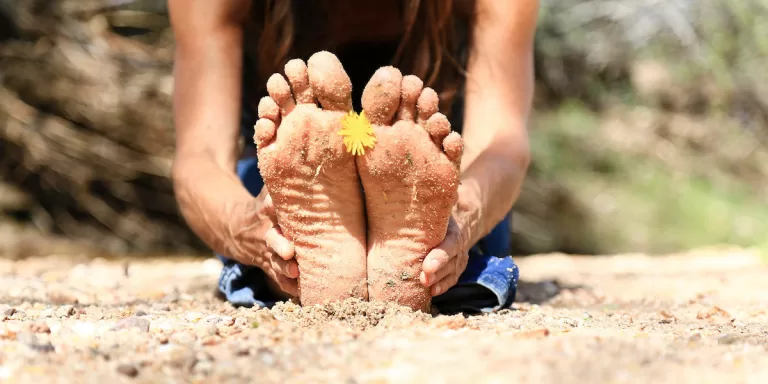How Minimalism Can Reduce Stress and Cortisol Levels.

Minimalism and anxiety are closely linked as people seek to simplify their lives to reduce stress. The minimalist lifestyle, focusing on essentials, helps alleviate mental clutter and lowers cortisol levels. Phone detox and digital detox practices have surged in popularity, allowing individuals to escape the overwhelming digital overload. Digital detoxification is now seen as vital for improving mental health and fostering mindfulness. Minimalism psychology emphasizes that clearing physical possessions can enhance mental clarity, leading to better well-being. Whether through unplugged living or exploring how minimalism and mindfulness intersect, the trend offers pathways to reclaiming peace and mental balance. People often ask, does minimalism make you happier? Exploring questions like this and whether it is normal to stress every day reflects the growing interest in how reducing excess can lead to more fulfillment and mental health benefits.
Table of Contents
- How Minimalism Can Reduce Stress and Cortisol Levels.
- The Link Between Clutter and Stress
- How Minimalism Lowers Stress
- Cortisol: The Stress Hormone
- The Minimalist Mindset: Shifting Focus to What Matters
- Essentialism vs. Minimalism: Key Differences
- The Long-Term Benefits of Minimalism on Health and Stress
- Decluttering Beyond the Physical: Digital and Mental Minimalism
- Emotional Well-Being and the Power of Less
- Does Minimalism Make You Happier?
- Is it Normal to Stress Every Day?
- Quick Tips for Reducing Stress Through Minimalism
- Wrapping it Up
- Sources
The Link Between Clutter and Stress
Clutter doesn’t just affect how tidy a space looks—it can also contribute directly to stress levels. In fact, a cluttered environment overwhelms the brain, making it difficult to focus and process information efficiently. According to research from Princeton University, clutter competes for our attention and forces the brain to multitask in ways it isn’t designed for, leading to cognitive overload and higher stress levels. Similarly, a UCLA study from 2010 revealed that women who described their homes as “cluttered” had significantly higher levels of cortisol than those who reported their homes as “restful”. This connection between clutter and elevated stress hormones underscores the toll that excess can take on mental health.
How Minimalism Lowers Stress
Minimalism promotes a lifestyle in which you intentionally remove excess in favor of simplicity and purpose. By reducing clutter—both physical and mental—you create a more peaceful environment that allows the brain to relax and focus on what truly matters. Minimalism offers a sense of control, which in turn helps reduce stress levels.
For instance, research published in the Journal of Environmental Psychology has shown that environments with fewer distractions lead to reduced cognitive load and lower cortisol levels. Clean, uncluttered spaces allow the brain to rest, making it easier to focus, relax, and recharge. This reduction in mental strain leads to lower stress and anxiety, creating a positive cycle of mental and emotional well-being.

Cortisol: The Stress Hormone
Cortisol is often referred to as the “stress hormone” because it’s released in response to stressful situations. While cortisol is essential for managing short-term challenges, chronically elevated levels can contribute to a range of health problems, including weight gain, sleep disorders, high blood pressure, and a weakened immune system. A cluttered environment keeps the brain in a state of chronic stress, leading to sustained cortisol production.
By adopting a minimalist lifestyle, you can directly influence your body’s stress response. A decluttered, peaceful environment helps the brain feel safer and more in control, reducing the constant state of “alert” that triggers cortisol release. In essence, minimalism fosters both mental and physical relaxation, helping to lower stress hormone levels naturally over time.
The Minimalist Mindset: Shifting Focus to What Matters
Minimalism goes beyond tidying up your home—it’s a mindset that emphasizes living with purpose. Minimalists believe that by focusing on the essential things that bring value, we can strip away the excess that weighs us down. This shift in perspective can be transformative for mental health and emotional well-being.
At the heart of minimalism is the concept of intentionality. Whether you’re decluttering your living room or simplifying your daily schedule, minimalism asks you to reflect on what truly adds value to your life. The result is a more mindful approach to consumption, work, and relationships, with a focus on quality over quantity.

When you begin to adopt a minimalist mindset, you’ll find that you no longer feel the need to chase after material possessions or social status. This mental and emotional shift can have profound effects on stress levels, allowing you to feel more content with what you have rather than anxious about what you lack. By simplifying your priorities and letting go of distractions, you can reduce the mental clutter that often contributes to stress and anxiety.
Essentialism vs. Minimalism: Key Differences
Minimalism and essentialism are closely related philosophies that both encourage simplifying life, but they differ in key ways. While minimalism focuses on reducing material possessions and distractions, essentialism goes a step further by focusing on choosing only the most important things to invest your time, energy, and resources into.
Minimalism is about cutting out the excess: decluttering, reducing consumption, and eliminating distractions to create a more peaceful environment. It’s largely focused on the “stuff” that fills our lives and the chaos that comes from excess possessions and commitments.
Essentialism, on the other hand, is more about prioritizing. It’s about identifying the things that are truly essential and ignoring the rest. Essentialism asks you to do fewer things, but better. While minimalism focuses on simplifying your physical space and lifestyle, essentialism focuses on streamlining your efforts and time management. Both philosophies reduce stress by encouraging intentional living, but essentialism places more emphasis on focusing only on the few things that truly matter.
The Long-Term Benefits of Minimalism on Health and Stress
The benefits of minimalism extend far beyond an initial sense of relief. As you maintain a minimalist lifestyle, the positive effects can ripple throughout every area of your life, including physical health. Chronic stress has been linked to numerous health issues, such as heart disease, digestive disorders, and autoimmune conditions. By intentionally lowering stress through minimalism, you help protect your body from the long-term effects of elevated cortisol.
Minimalism also encourages the development of healthier habits. When you have fewer distractions and less clutter, it becomes easier to focus on self-care, proper nutrition, and regular exercise. This sense of balance and control can improve not only your mental health but your overall physical well-being.

Decluttering Beyond the Physical: Digital and Mental Minimalism
Minimalism isn’t just about decluttering your physical space; it also applies to digital and mental clutter. In a world dominated by smartphones, social media, and constant notifications, digital clutter can be just as stressful as physical clutter.
Digital minimalism encourages reducing unnecessary apps, doing a digital detox, limiting screen time, and curating your digital environment to align with your values. This can significantly reduce the stress and anxiety that comes from being constantly plugged into the digital world. By simplifying your digital life, you free up mental space, allowing for greater focus, relaxation, and creativity.
Mental decluttering, often achieved through mindfulness practices, is another essential component of minimalism. It involves letting go of unproductive thoughts, simplifying decision-making, and staying present in the moment. By clearing out mental clutter, you can experience greater emotional clarity and a deeper sense of calm.
Emotional Well-Being and the Power of Less
One of the most profound benefits of minimalism is its impact on emotional well-being. A simplified lifestyle promotes relaxation and fosters positive emotions. By letting go of the pressure to keep up with societal expectations or accumulate material possessions, you free yourself from a significant source of emotional strain.
Minimalism allows you to focus on what truly brings you joy—whether it’s spending time with loved ones, engaging in hobbies, or simply enjoying quiet moments of reflection. This emotional shift can lead to increased happiness, contentment, and a greater sense of fulfillment.

Does Minimalism Make You Happier?
Minimalism can contribute to happiness by removing distractions and simplifying life, allowing you to focus on what truly matters. By decluttering your space and mind, minimalism creates room for meaningful experiences, relationships, and personal growth. Studies show that reducing material possessions often leads to increased satisfaction and a greater sense of well-being. However, happiness is subjective, and while minimalism can be a powerful tool for some, it may not be a one-size-fits-all solution.
Is it Normal to Stress Every Day?
Daily stress is common, especially in a fast-paced society, but chronic stress isn’t healthy. While short-term stress can be a natural response to challenges and may even motivate action, persistent stress can negatively impact both physical and mental health. It’s important to recognize the difference between occasional stress and long-term anxiety and to take steps to manage it—whether through mindfulness, minimalism, or other coping strategies—to maintain overall well-being.

Quick Tips for Reducing Stress Through Minimalism
- Start Small: Begin with one room, drawer, or even a corner. Decluttering bit by bit helps prevent overwhelm.
- One In, Two Out Rule: Every time you bring something new into your home, remove two items of something old. This keeps clutter from accumulating.
- Digital Detox: Clear out unnecessary apps, emails, and notifications. Reducing digital clutter can significantly lower stress.
- Mindful Purchases: Before buying something, ask yourself if it’s necessary and if it adds real value to your life.
- Daily Declutter Routine: Spend 5-10 minutes each day tidying up and removing what you no longer need. Consistency is key.
- Embrace “Enough”: Focus on what’s essential and what truly makes you happy rather than constantly striving for more.
- Simplify Your Schedule: Prioritize your time and energy on what truly matters. Say no to commitments that don’t align with your goals.
Wrapping it Up
Minimalism isn’t just a trend; it’s a lifestyle that can have powerful effects on your mental and physical health. By reducing clutter and distractions, you create space for more meaningful experiences, lower stress, and reduced cortisol levels. Whether you’re drawn to minimalism for its aesthetic appeal or its potential to improve your well-being, the benefits are undeniable. With a focus on what truly matters, minimalism offers a sustainable path to a calmer, more intentional life.
Sources
- Princeton Neuroscience Institute: Clutter and Attention Study
- UCLA Study: Stress and Clutter in Home Environments
- Journal of Environmental Psychology: Clutter and Stress Reduction Research
- Mayo Clinic: Clutter, Mental Health, and Stress
- Mindfulness-Based Stress Reduction (MBSR): MBSR Programs








